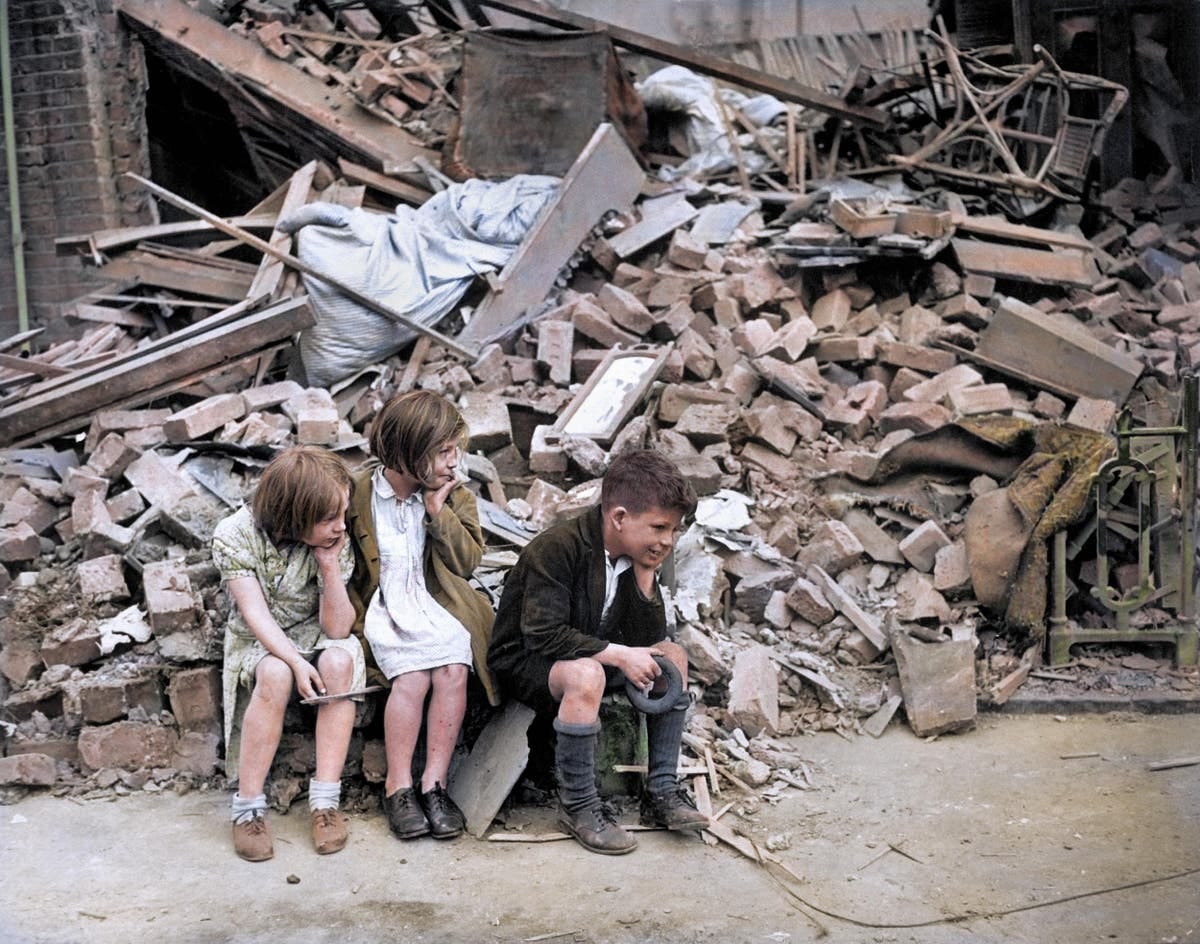Josie! Josie! Get up!
My Mum’s cries got more urgent as she ran down the hallway. As I woke, I knew why. The sirens were getting louder, meaning the German Bombers were getting closer. We didn’t have time to grab anything. We ran outside, heading for the shelter. The sirens were deafening, but now we could hear the hum of the German planes creeping toward us.
We were still 50 meters from the shelter, but the sound of the planes were right above us… it was too late. If they dropped their bombs now, we were surely dead… but as those agonising moments ticked by… nothing happened… we saw the bombers fly off into the distance… We were okay.

In 1942, Nazi Germany orchestrated nearly 8 months of continuous bombing in London, England. Their plan, besides the destruction of enemy infrastructure, was to demoralise the English population.
With each bombing raid on the capital city, the Germans were expecting the cumulative stress of the bombings to destroy the hearts and minds of the locals… What happened instead was remarkable.
As the bombings unfolded, the Brits became more resilient. Each time a bomb fell and each time they survived, they were emboldened that they would continue to survive the onslaught.

J. T. MacCurdy studied this phenomenon1, observing three distinct groups that resulted in the unexpected resilience. The people killed, the near misses, and the remote misses.
The people killed could not tell their story and contribute to panic, the near misses would witness the devastation first hand, but would be outweighed by the remote misses who would experience a sense of excitement and invincibility from surviving the bombings.
When my Dad passed from suicide, I was able to adopt coping mechanisms that left me feeling invincible. But when my Mum was diagnosed with Ovarian Cancer, my world was turned upside down.
After my Mum passed, I felt like I had experienced two near misses in a row. Witnessing the death of a parent and experiencing what felt like an significant mental health struggle, striking fear in me that I could face the same demise as my Dad.
I’ve been a remote miss, I’ve been a near miss, and I can share my story. But my Dad can never share his. And as we wrote about in our article on Survivorship Bias, herein lies a potential blind-spot in our pursuit of a suicide-free ACT.
We know we’re missing part of the story…
How can we uncover it?
As it heats up
Please make sure you bring water if possible, and run or walk at your own pace.
And as always
Please share the path and keep left.





